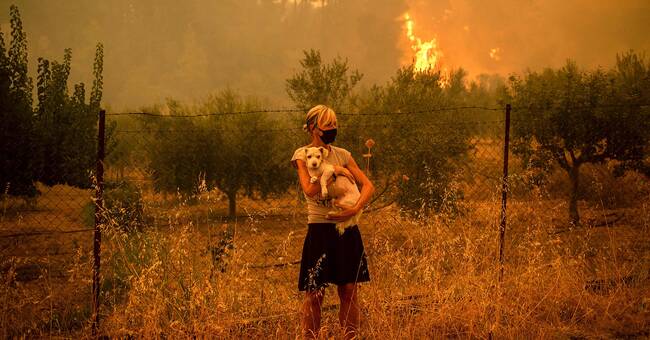Today, the UN's climate panel, the IPCC, presents its major report on the scientific basis for climate change.
It is eight years since the previous one was released and since then the global average temperature has risen by 0.2 degrees.
It is today 1.1 degrees warmer compared to when the industrial revolution started in the middle of the 18th century.
More robust and better
The UN Climate Panel now says that it is an unequivocal fact that it is human emissions of greenhouse gases and other impacts that are changing the climate.
- The report contains more and more reliable information about the climate change we have already observed.
The scientific models are more robust and the observations better, says Michael Tjernström who is a professor of meteorology at Stockholm University.
Humans cause extreme weather
The IPCC now says in its report that the evidence that different types of extreme weather are linked to human impact has been strengthened since the most recent report came in 2013. This involves an increased risk of more intense heat waves, torrential rain and extreme drought.
"Some of the heat extremes we have seen in the last decade would have been extremely unlikely if it were not for the human impact on the climate system."
writes the IPCC.
- The extremes we will get fewer of are cold-related extremes, says Erik Kjellström who is a professor of climatology at SMHI.
The sea will continue to rise
The heat means that almost all ice sheets and glaciers are melting faster and faster, which is now the biggest reason why sea levels are rising globally.
In the most optimistic scenario, the earth's population will succeed in cutting carbon dioxide emissions and the temperature will only rise to 1.5 degrees.
Then the sea level in 2100 may have risen up to half a meter compared to the beginning of industrialism.
The sea reacts slowly to temperature changes and will continue to rise and can be up to three meters in 2300, according to the IPCC.
Requires scarce carbon dioxide diet
In order for us to be able to stick to 1.5 degree warming, humanity must adapt to a scarce carbon dioxide diet.
The forecast says that we must reduce emissions to zero sometime around 2050.
Today, we emit a total of 40 billion tonnes of carbon dioxide per year and instead of reducing it, the amount of emissions increases every year.
And we only have to release a certain amount in order for us to be able to keep the 1.5 degree goal.
That's our coal budget.
- We'm eating up this space.
There is only a decade left until we have run out of coal.
Then we no longer have any theoretical chance of achieving the 1.5 degree goal, says Erik Kjellström.
Javascript is disabled
Javascript must be turned on to play video
Read more about browser support
The browser is not supported
SVT does not support playback in your browser.
We therefore recommend that you switch to another browser.
Read more about browser support
Three conclusions from the UN climate report.
Photo: Storyblocks / SVT

